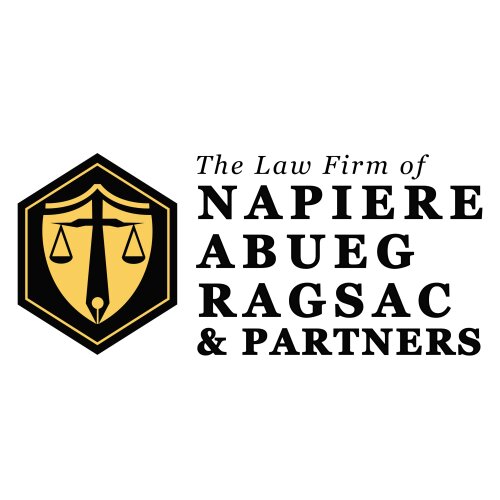Best Immigration Lawyers in Pasig
Share your needs with us, get contacted by law firms.
Free. Takes 2 min.
List of the best lawyers in Pasig, Philippines
Philippines Immigration Legal Questions answered by Lawyers
Browse our 15 legal questions about Immigration in Philippines and read the lawyer answers, or ask your own questions for free.
- Lifting for blocklist
- My father in-law had an argument with the homeowner president he's is just defending my mother.then after that the next day we received a letter from the immigrantion that our father need to go back to us.but my mom and father are already married.and they already registered here in the... Read more →
-
Lawyer answer by CAGUIA TAN & CUA Law Offices
You may contest the blacklisting of your father. We can definitely assist you with that.
Read full answer - Iraq Police Clearance
- Sir Good Day, I am Rino Octa Villaluz, a Filipino citizen. From April 9, 2019, to September 15, 2020, I worked for Cercis Limited (Jardin Agrodis) at Erbil Airport in Erbil, Iraq, as a Document Controller, HR Coordinator, and Site Secretary. I returned to the Philippines due to the pandemic.... Read more →
-
Lawyer answer by Romano Legal Services
I can facilitate the securing of an Iraqi clearance for you if you will sign a Special Power of Attorney in my favor for that purpose.
Read full answer - what should i do if i have ongoing case about bp22 and i was about to lodge my student visa?
- i already have my nbi clearance and no deragatory record is indicated but now i will lodge my student visa and now a bp22 is file against me im still waiting for my subpoena.i dont know what will i do now because i was thinking that my visa will.be denied... Read more →
-
Lawyer answer by Recososa Law Firm
Hello:We truly understand your worries, especially with something as important as your future studies abroad. You’ve worked hard to get this far, and we want you to know that you’re not alone. We’re here to help you sort this out...
Read full answer
About Immigration Law in Pasig, Philippines
Immigration law in Pasig, much like the rest of the Philippines, is governed by national legislation, primarily focusing on the entry, stay, and exit of foreign nationals in the region. This legal framework aims to balance the country's economic needs with national security and public safety. In Pasig, as a bustling urban area, the need for clear immigration rules and processes is crucial for ensuring both compliance and the protection of the rights of immigrants.
Why You May Need a Lawyer
Immigration processes can be complex, with intricate procedures and potential legal hurdles. Here are some common situations where you might need a lawyer:
- Applying for a visa or extension: The visa application process can be detailed and requires adherence to strict guidelines, which a lawyer can help navigate.
- Facing deportation or removal proceedings: Legal representation is crucial if you are threatened with removal from the Philippines.
- Seeking residency or citizenship: Transitioning from temporary residence to permanent residency or citizenship involves numerous legal requirements.
- Employment concerns: Legal assistance may be needed to address work permit issues or employer-related visa concerns.
- Family reunification: Reuniting with family members may require legal action to address complexities in family visas or sponsorships.
Local Laws Overview
Pasig City, as part of Metro Manila, adheres to national laws but also has local regulations affecting immigrants. Key aspects to be aware of include:
- The Philippine Immigration Act of 1940: This is the primary legislation governing immigration policies and procedures.
- The Executive Order No. 194, series of 1994: This order liberalizes the entry of foreign nationals and the granting of employment visas.
- Special employment policies: Local laws accommodate various types of employment permits tailored for foreigners, including Alien Employment Permits (AEP) and Special Work Permits (SWP).
Frequently Asked Questions
What types of visas are available for staying in the Philippines?
Common visa types include tourist visas, business visas, employment visas, student visas, and immigrant visas for different durations and purposes.
How can I extend my visa stay in Pasig?
You must apply for a visa extension through the Bureau of Immigration, meeting the requirements and paying the necessary fees.
What should I do if I overstay my visa?
Contact the Bureau of Immigration immediately to resolve your status, as overstaying can lead to fines, deportation, or blacklisting.
Who is eligible for a Philippine citizenship application?
Eligibility generally requires residency of several years, good moral character, and an oath of allegiance, among other criteria.
Can I work in Pasig while on a tourist visa?
No, working on a tourist visa is illegal. Employment requires the relevant work permit or visa.
Is it possible to sponsor family members to join me in the Philippines?
Yes, certain visas allow family reunification, but this often involves a detailed application process and proof of relationship.
What are the most common reasons for visa denial?
Common reasons include incomplete documentation, lack of financial means, failure to meet eligibility criteria, or security concerns.
How long does it typically take to process an immigration application?
Processing times can vary widely depending on the visa type, the applicant’s situation, and the complexity of their case.
How do I check the status of my visa application?
You can check the status of your application online through the Bureau of Immigration's website using your application number.
Can legal assistance expedite my immigration process?
While legal assistance does not guarantee faster processing, a lawyer can help avoid mistakes that cause delays and present your case effectively.
Additional Resources
Below are some resources and institutions that are helpful for immigration-related inquiries:
- Bureau of Immigration: They offer guidance and updates on visa policies.
- Department of Foreign Affairs: Assists with travel documents and consular needs.
- Commission on Filipinos Overseas: Provides assistance to Filipino emigrants and immigrants.
- Local government offices in Pasig: Can offer support and information on local requirements and services.
Next Steps
If you need legal assistance in immigration matters in Pasig, consider reaching out to a practicing immigration lawyer familiar with local and national laws. Prepare all necessary documentation and information to ensure an efficient consultation. Seek referrals or reviews in the community to find knowledgeable professionals who can assist with your specific requirements. Legal aid associations and non-profit organizations can also be a good starting point if you require affordable assistance.
Lawzana helps you find the best lawyers and law firms in Pasig through a curated and pre-screened list of qualified legal professionals. Our platform offers rankings and detailed profiles of attorneys and law firms, allowing you to compare based on practice areas, including Immigration, experience, and client feedback.
Each profile includes a description of the firm's areas of practice, client reviews, team members and partners, year of establishment, spoken languages, office locations, contact information, social media presence, and any published articles or resources. Most firms on our platform speak English and are experienced in both local and international legal matters.
Get a quote from top-rated law firms in Pasig, Philippines — quickly, securely, and without unnecessary hassle.
Disclaimer:
The information provided on this page is for general informational purposes only and does not constitute legal advice. While we strive to ensure the accuracy and relevance of the content, legal information may change over time, and interpretations of the law can vary. You should always consult with a qualified legal professional for advice specific to your situation.
We disclaim all liability for actions taken or not taken based on the content of this page. If you believe any information is incorrect or outdated, please contact us, and we will review and update it where appropriate.
Browse immigration law firms by service in Pasig, Philippines
Pasig, Philippines Attorneys in related practice areas.
















